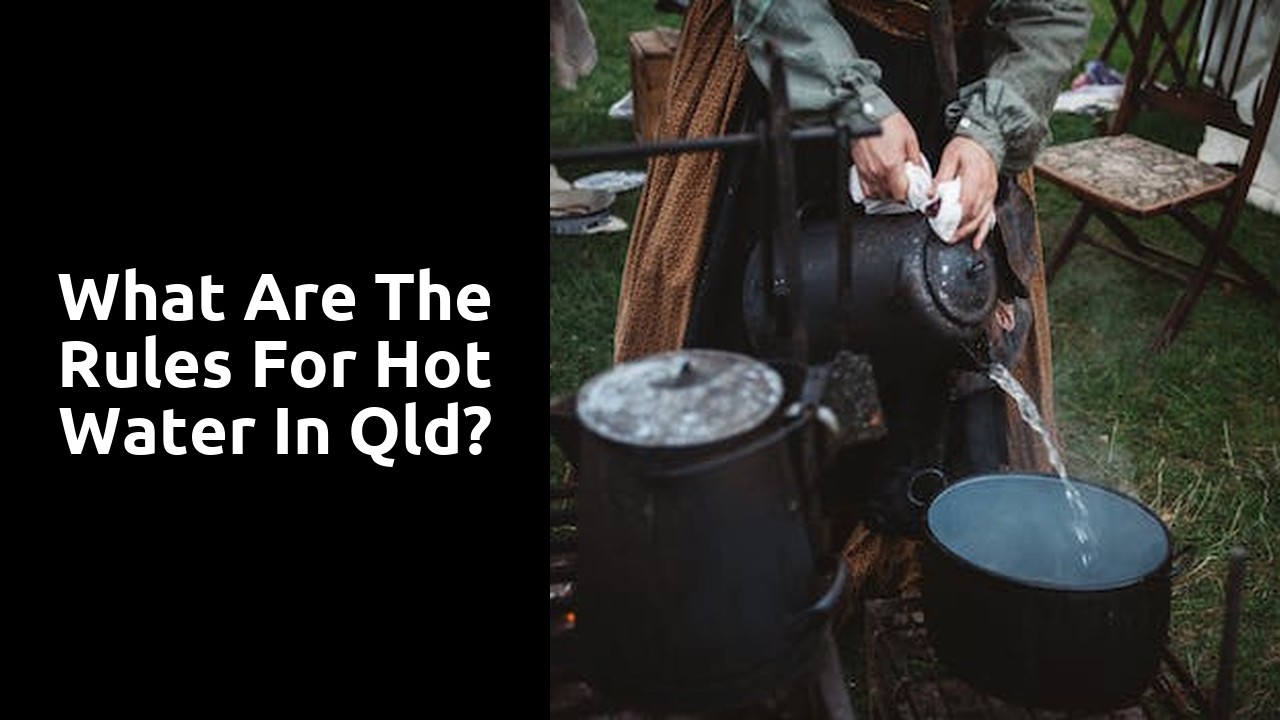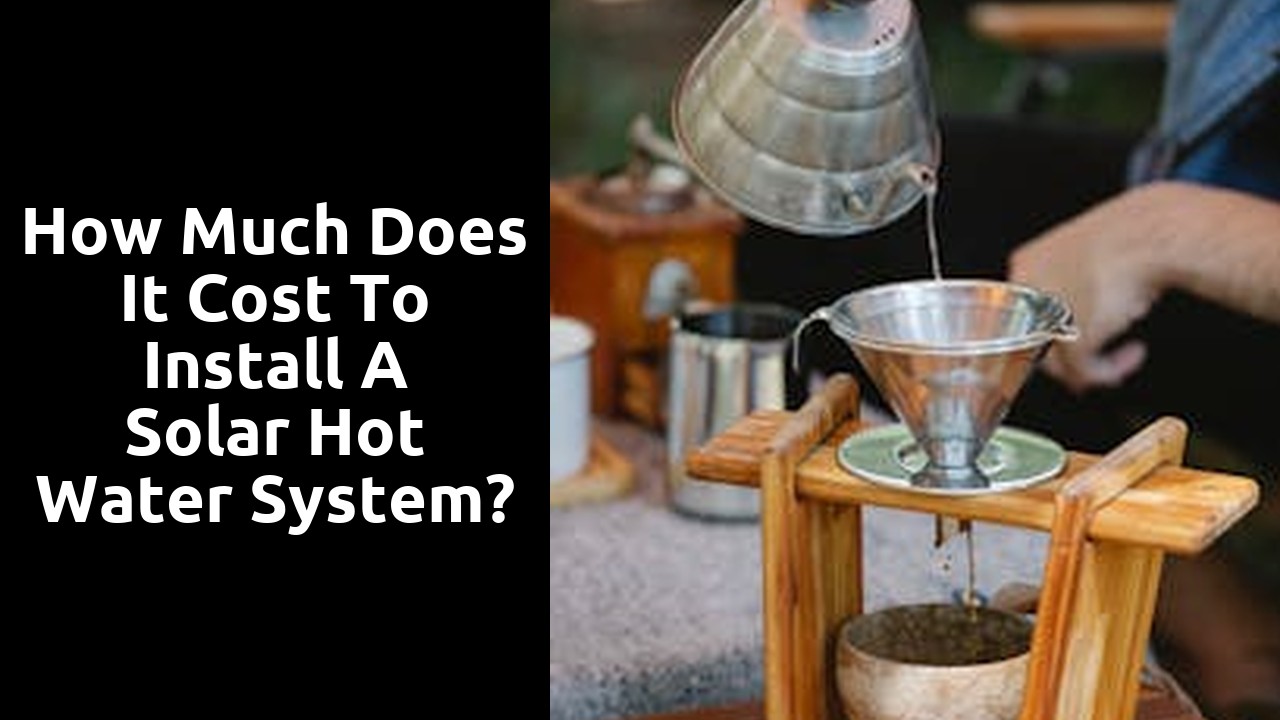
Energy Efficiency Guidelines for Hot Water Systems
Energy efficiency guidelines are vital for hot water systems in Queensland to promote sustainability and reduce energy consumption. When it comes to selecting a hot water system, considering energy-efficient options is paramount. Solar hot water systems play a significant role in promoting energy efficiency and reducing greenhouse gas emissions. In Queensland, prioritising Solar Hot Water System Design and Installation not only conserves energy but also supports the use of renewable energy sources, aligning with the state's sustainability goals. By adhering to energy efficiency guidelines, individuals can contribute to a more environmentally conscious approach to hot water usage in their households.
Furthermore, apart from choosing energy-efficient hot water system models, it is crucial to implement practices that optimise energy usage. Regular maintenance and timely repairs are imperative to ensure the efficient operation of hot water systems. Monitoring water temperature settings and insulation levels can also enhance the system's energy efficiency. Compliance with these guidelines not only results in cost savings for households but also collectively contributes towards a greener and more sustainable future for Queensland.
Usage of EnergyEfficient Hot Water Heaters
Energy efficiency is a top priority when it comes to hot water heating in Queensland. Opting for energy-efficient hot water heaters not only lowers utility bills but also reduces environmental impact. The installation of solar hot water systems is gaining popularity due to their sustainable nature and cost-effective operation. Incorporating solar hot water system design and installation in homes contributes significantly to maximizing energy efficiency and minimising carbon footprints.
Homeowners in Queensland are encouraged to consider the usage of energy-efficient hot water heaters to fulfill their daily hot water needs. By choosing sustainable options like solar hot water systems, residents can not only promote eco-friendly practices but also benefit from long-term savings on energy expenses. Embracing innovative technologies and adopting energy-efficient measures, such as Solar Hot Water System Design and Installation, is pivotal in creating a more sustainable and greener future for Queensland.
Safety Protocols for Hot Water Systems in Queensland
When it comes to ensuring the safety of hot water systems in Queensland, following specific protocols is crucial. Regulations require that all hot water systems, including solar hot water systems, adhere to strict guidelines to prevent accidents and uphold safety standards. Proper installation and maintenance of these systems are essential to guarantee the safety of users and minimize the risk of incidents.
Solar hot water system design and installation must comply with state regulations to guarantee safety and efficiency. It is imperative that licensed professionals handle the installation of these systems to ensure that they meet all safety standards. Regular inspections and maintenance are also recommended to identify and address any potential safety concerns promptly. By following the required safety protocols, individuals can enjoy the benefits of hot water systems without compromising on safety.
Prevention of Scalding Accidents with Hot Water Systems
When it comes to preventing scalding accidents with hot water systems in Queensland, one crucial aspect to consider is setting the water heater temperature at a safe level. The ideal temperature for hot water outlets in homes should not exceed 50 degrees Celsius to minimize the risk of scalding, especially for young children and elderly individuals. Regularly checking and adjusting the thermostat on the hot water system can help maintain the water temperature within the recommended range.
Another effective measure to prevent scalding accidents is to install thermostatic mixing valves (TMVs) in the plumbing system. TMVs are designed to regulate the water temperature at the outlet, ensuring a consistent and safe level of warmth. Additionally, considering the installation of a Solar Hot Water System Design and Installation can be a sustainable and energy-efficient solution to provide hot water while reducing the risk of scalding accidents. These systems harness solar energy to heat water, offering a safer alternative to traditional water heating methods.
Rebates and Incentives for Hot Water System Upgrades in QLD
Rebates and incentives for upgrading hot water systems in Queensland can provide significant savings for homeowners looking to improve the efficiency of their homes. The Queensland government offers various schemes to encourage the installation of energy-efficient hot water systems. This includes rebates for purchasing and installing approved hot water systems, such as solar hot water systems, which are an environmentally friendly and cost-effective option for households.
Solar hot water systems are a popular choice for homeowners seeking to reduce their energy bills and environmental impact. The Queensland government provides rebates and incentives for the design and installation of solar hot water systems, making them a more affordable option for many households. By taking advantage of these schemes, homeowners not only save money upfront but also contribute to a more sustainable future by reducing their carbon footprint.
Government Schemes for Renewable Hot Water Systems
Government schemes in Queensland aim to encourage the adoption of renewable hot water systems, specifically focusing on solar technology. The state government offers various rebates and incentives to households and businesses that opt for renewable hot water solutions. By promoting the use of solar hot water systems, Queensland aims to reduce carbon emissions and decrease reliance on traditional energy sources.
Solar hot water system design and installation are key components of the government schemes for renewable hot water systems in Queensland. These initiatives provide financial assistance to individuals and organizations willing to make the switch to sustainable hot water solutions. By investing in renewable technology like solar hot water systems, residents and businesses across Queensland can contribute to environmental conservation and energy efficiency goals set by the government.
FAQS
What are the energy efficiency guidelines for hot water systems in Queensland?**
The energy efficiency guidelines for hot water systems in Queensland recommend using energy-efficient models to reduce electricity consumption and operating costs. **
How can I ensure the usage of energy-efficient hot water heaters in Queensland?**
To ensure the usage of energy-efficient hot water heaters in Queensland, you can look for systems with a high energy rating and consider using solar or heat pump hot water systems. **
What safety protocols should I follow for hot water systems in Queensland?**
To ensure safety with hot water systems in Queensland, it is recommended to set the water temperature below 50 degrees Celsius to prevent scalding accidents. **
How can I prevent scalding accidents with hot water systems in Queensland?**
To prevent scalding accidents with hot water systems in Queensland, you can install tempering valves and educate household members about safe hot water usage practices. **
Are there any rebates and incentives available for upgrading hot water systems in QLD?**
Yes, there are rebates and incentives available for upgrading hot water systems in Queensland, such as government schemes that promote the installation of renewable hot water systems. **
What government schemes exist for renewable hot water systems in Queensland?**
The government schemes for renewable hot water systems in Queensland include incentives and rebates to encourage the adoption of solar, heat pump, and other sustainable hot water technologies.
